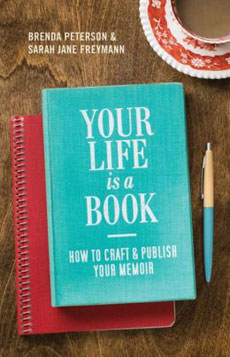Writing, Reading, and Empathy
"Originally, humans relied on storytellers to comfort and inspire us, to help us change our lives and navigate a moral universe. Later, we turned to religious works and philosophy for insight, and ultimately to novels and memoirs for a deeper and more universal understanding of the world and ourselves. The enduring popularity of storytelling, in whatever form, shows us that we learn how to grow and change from learning about other people's lives. Stories can bypass dogma and politics and even cultural divides, engaging the reader's compassion.
"According to an article in the New York Times, a recent New School psychology study concluded that reading 'sensitive and lengthy explorations of people's lives . . . can lead to more empathy and understanding.' Professor James Pennebaker, psychologist and author of Writing to Heal and Opening Up: Healing Power of Expressing Emotions, says that merely turning the events of our lives into language actually effects changes in our brain and our immune systems. Reading makes us more human and humane — and so does writing.
"No story has as much power to change you as the story you tell yourself about yourself. More than any other, this is the story that drives who you are and influences you every step of the way. As memoirist Sue Monk Kidd writes, 'I think many people need, even require, a narrative version of their life. Writing memoir is, in some ways, a work of wholeness.' When Nancy Pearl interviewed Brenda for Book Lust, she commented, 'I don't think I really knew you until I read your memoir.'
"In many spiritual traditions, the teachers say that the main problem we humans have is being stuck in our story. But it's not the story that's wrong; it's our limited or unexplored version of it. If we see the story with new eyes, it frees us to change it.
"It's not just telling a better story; it's living that more evolved story. And knowing that at every moment a better story is available. Moment by moment, you can transform your life — and your story. And then — us."
